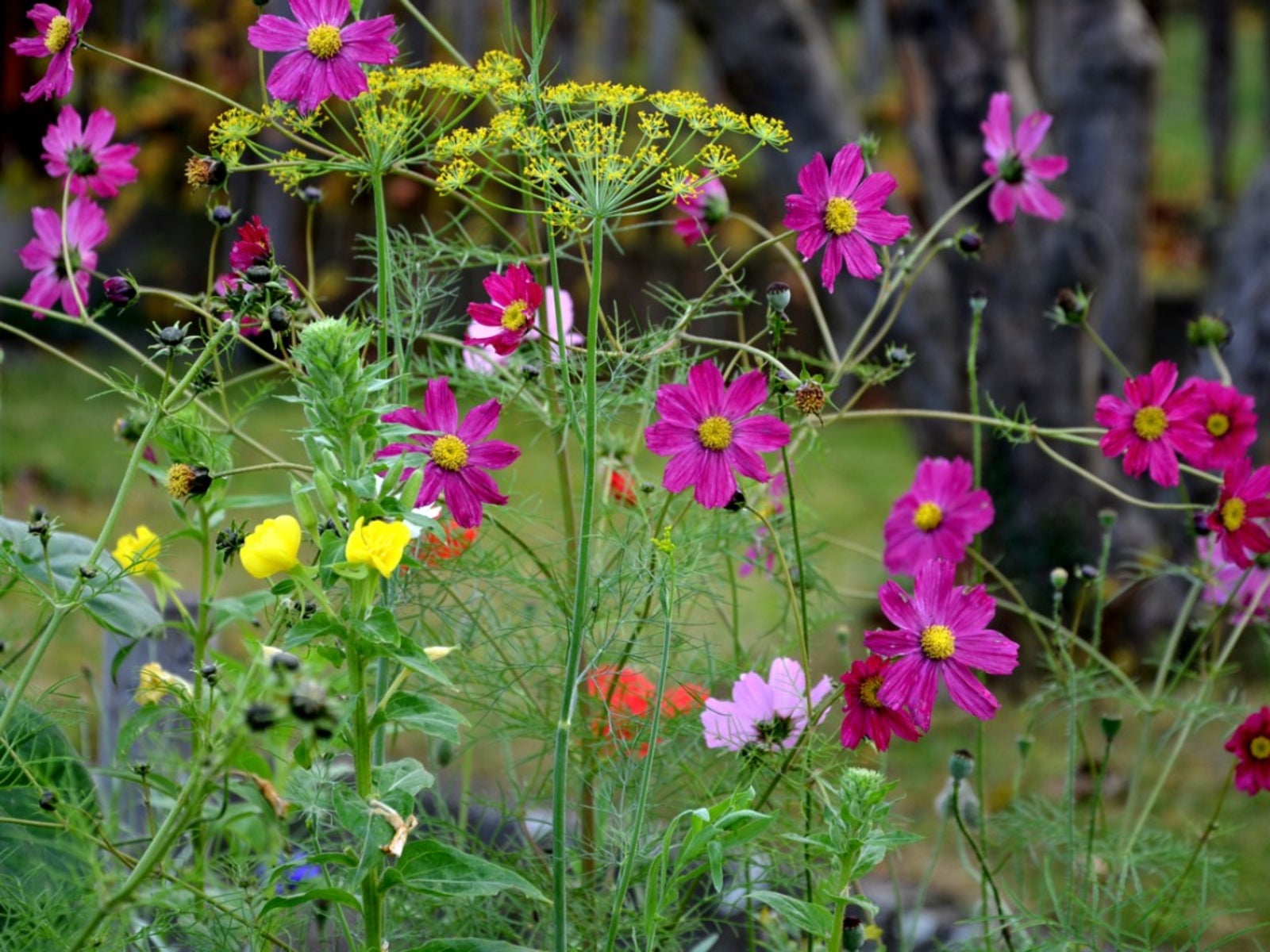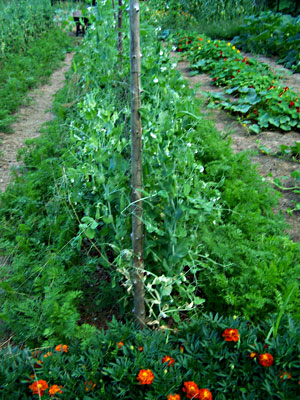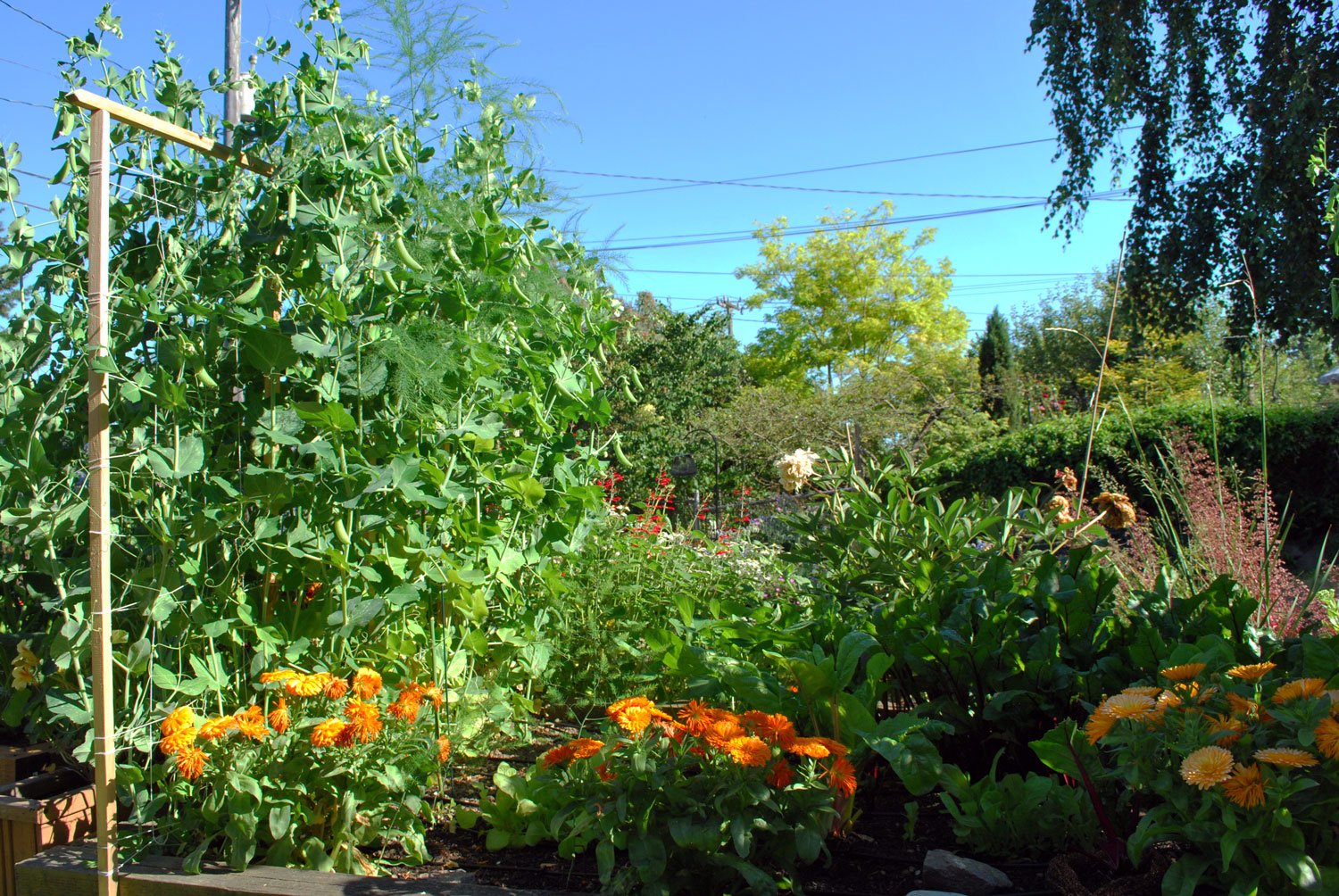Cosmos Companion Plants: The Ultimate Guide To Growing Healthy Vegetables
Cosmos Companion Plants: The Ultimate Guide to Growing Healthy Vegetables
Cosmos are beautiful, easy-to-grow flowers that can add a splash of color to any garden. They're also a great choice for companion planting with vegetables. Cosmos attract beneficial insects, deter pests, and help to improve soil health.
In this blog post, we'll discuss the best companion plants for cosmos, as well as some tips on how to plant them together. We'll also cover some of the benefits of companion planting, and why it's a great way to grow healthy vegetables.
Benefits of Companion Planting
There are many benefits to companion planting. Some of the most common benefits include:
- Reduced pest pressure: Companion plants can help to deter pests by attracting beneficial insects, such as ladybugs and lacewings. These insects prey on pests, helping to keep them in check.
- Improved pollination: Some companion plants, such as cosmos, attract pollinators such as bees and butterflies. These pollinators help to pollinate vegetable plants, resulting in higher yields.
- Improved soil health: Companion plants can help to improve soil health by fixing nitrogen, breaking down organic matter, and suppressing weeds.
- Increased biodiversity: Companion planting can help to increase biodiversity in your garden. This can make your garden more resilient to pests and diseases, and it can also provide a habitat for wildlife.
Best Companion Plants for Cosmos
Some of the best companion plants for cosmos include:
- Beans: Beans are nitrogen-fixing plants, which means they can help to improve the nitrogen content of the soil. This can benefit cosmos, which are heavy feeders.
- Carrots: Carrots and cosmos are both root vegetables, and they don't compete for resources. They can also help to repel carrot flies.
- Cucumbers: Cosmos can help to deter cucumber beetles, which are a common pest of cucumbers.
- Eggplant: Cosmos can help to attract pollinators, which are important for eggplant pollination.
- Lettuce: Lettuce and cosmos are both cool-season crops, and they can be planted together in the early spring or fall.
- Melons: Cosmos can help to deter melon flies, which are a common pest of melons.
- Peas: Peas are nitrogen-fixing plants, and they can help to improve the nitrogen content of the soil. This can benefit cosmos, which are heavy feeders.
- Potatoes: Cosmos can help to repel potato beetles, which are a common pest of potatoes.
- Spinach: Spinach and cosmos are both cool-season crops, and they can be planted together in the early spring or fall.
How to Plant Cosmos with Companion Plants
When planting cosmos with companion plants, it's important to consider the size and growth habit of each plant. For example, tall plants like sunflowers should be planted behind shorter plants like cosmos. You should also plant companion plants that have similar water and sunlight requirements.
Here are some tips on how to plant cosmos with companion plants:
- Plan your garden layout carefully. Take into account the size and growth habit of each plant.
- Plant companion plants that have similar water and sunlight requirements.
- Plant tall plants behind shorter plants.
- Space plants appropriately. Give each plant enough room to grow.
- Mulch around your plants. Mulch helps to retain moisture and suppress weeds.
Conclusion
Companion planting is a great way to grow healthy vegetables. By planting cosmos with companion plants, you can reduce pest pressure, improve pollination, and improve soil health. With a little planning, you can create a beautiful and productive garden that's full of healthy vegetables.
Cosmos are beautiful flowers that can add a touch of color to any garden. But did you know that they can also be beneficial to your vegetable plants? That's right, cosmos are companion plants, which means that they can help to improve the growth and health of other plants in your garden.
Some of the best companion plants for cosmos include tomatoes, squash, and beets. Tomatoes and cosmos attract beneficial insects, such as bees and butterflies, which help to pollinate the tomatoes. Squash and cosmos both help to suppress weeds, and beets and cosmos provide a striking contrast in color.
If you're looking for more information about cosmos companion plants for vegetables, I recommend visiting Garden Wiki. This website has a comprehensive list of companion plants, as well as information about the benefits of companion planting.
FAQ of cosmos companion plants vegetables
- What are some good companion plants for cosmos?
Cosmos are excellent companion plants for vegetables because they attract beneficial insects like ladybugs while repelling destructive pests like tomato hornworms. Some of the best companion plants for cosmos include:
- Asparagus: Cosmos can help to improve the flavor of asparagus. [INSIGHT: Asparagus is a heavy feeder, and cosmos can help to improve the soil quality by adding nitrogen.]
- Beans: Cosmos can help to attract pollinators, which are important for beans to set fruit. [INSIGHT: Beans are nitrogen-fixing plants, and cosmos can help to improve the soil quality by providing nitrogen.]
- Carrots: Cosmos can help to deter carrot fly, a common pest of carrots. [INSIGHT: Cosmos emit a scent that carrots fly find unpleasant.]
- Cucumbers: Cosmos can help to attract pollinators, which are important for cucumbers to set fruit. [INSIGHT: Cosmos can also help to shade cucumbers from the sun, which can help to prevent them from developing blossom end rot.]
- Peas: Cosmos can help to attract pollinators, which are important for peas to set fruit. [INSIGHT: Cosmos can also help to improve the soil quality by adding nitrogen.]
- Can I plant cosmos next to vegetables?
Yes, cosmos can be planted next to vegetables. In fact, they are a great companion plant for many vegetables. However, it is important to consider the height of the cosmos plants when planting them next to vegetables. If you are planting tall cosmos varieties, you will need to leave enough space between them and the vegetables so that the cosmos do not shade the vegetables.
- How do cosmos benefit vegetables?
Cosmos benefit vegetables in a number of ways. They attract beneficial insects, which help to control pests. They also improve the soil quality by adding nitrogen. Additionally, cosmos can help to shade vegetables from the sun, which can help to prevent them from developing blossom end rot.
- What are some vegetables that I should avoid planting near cosmos?
There are no vegetables that you should absolutely avoid planting near cosmos. However, some vegetables may not benefit as much from being planted near cosmos as others. For example, tomatoes and potatoes are both heavy feeders, and cosmos may not be able to provide them with enough nutrients. Additionally, cosmos can attract aphids, which can be a pest of tomatoes.
- How do I start cosmos from seed?
Cosmos are one of the easiest flowers to grow from seed. You can sow the seeds directly in the garden bed in early spring, or start them indoors 6-8 weeks before the last frost. Cosmos seeds need light to germinate, so do not cover them with soil. Space the seedlings 6-8 inches apart once they have germinated.
Image of cosmos companion plants vegetables
- Cosmos and tomatoes: Cosmos are known to attract beneficial insects, such as ladybugs, which help to control pests that can damage tomatoes. They also help to suppress weeds and improve the soil quality.

- Cosmos and cucumbers: Cosmos can help to deter cucumber beetles, which can be a major pest of cucumbers. They also help to attract pollinators, which are essential for cucumber pollination.

- Cosmos and beans: Cosmos can help to attract beneficial insects, such as parasitic wasps, which help to control pests that can damage beans. They also help to improve the soil quality.

- Cosmos and squash: Cosmos can help to attract beneficial insects, such as ladybugs, which help to control pests that can damage squash. They also help to improve the soil quality.

- Cosmos and carrots: Cosmos can help to attract beneficial insects, such as hoverflies, which help to control pests that can damage carrots. They also help to improve the soil quality.

Post a Comment for "Cosmos Companion Plants: The Ultimate Guide To Growing Healthy Vegetables"